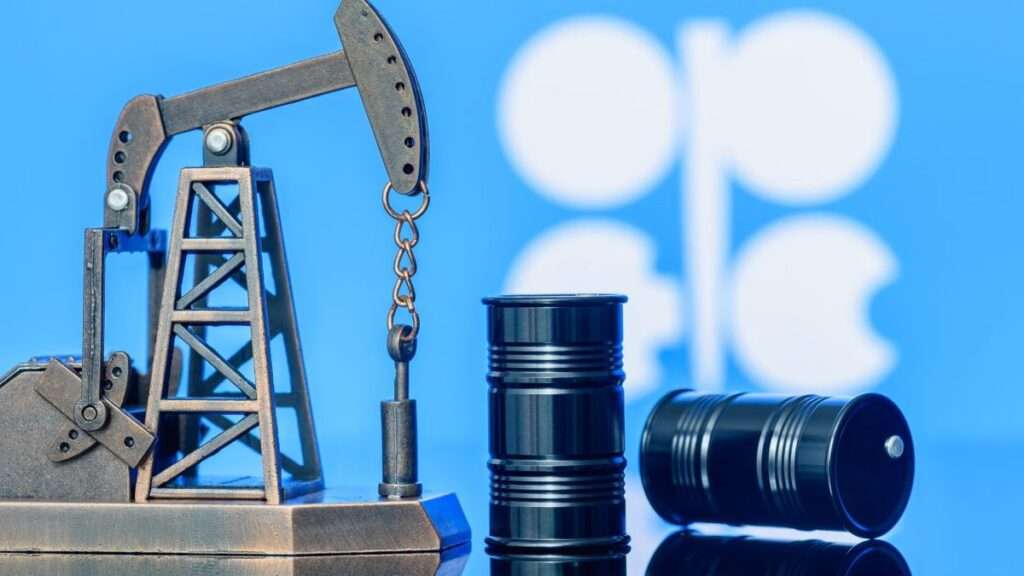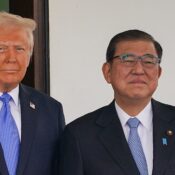
Russia Teases a Potential OPEC+ Policy Reversal, Driving Up Oil Prices
Oil prices increase as Novak of Russia makes a suggestion Due to US policy worries, the weekly decrease continues even though OPEC+ may reverse the April output increase.
On Friday, oil prices continued to rise as Russian Deputy Prime Minister Alexander Novak suggested that the Organization of Petroleum Exporting Countries (OPEC) and its partners would reverse their supply increase after April.
Prices were still on course to drop by more than 3% per week, though, because to worries about US tariff policy.
Yesterday afternoon, US West Texas Intermediate (WTI) futures increased 93 cents, or 1.4%, to $67.29. Meanwhile, Brent crude, Nigeria’s benchmark price, increased 99 cents, or 1.4%, to $70.45 a barrel.
The little increase in crude oil prices foretells conflicting outcomes for Nigeria. Rising prices could increase the nation’s income, but they also imply that Nigerians will have to pay more for gas, which is a need for many families and companies in the nation.
Falling global oil prices, however, suggest that Nigerians will pay less for gasoline and other goods, but the federal and state governments would probably receive less money overall.
On Friday, however, WTI hit $67.68 and Brent surged to as high as $70.76 during the session after Russia’s Novak informed reporters that the OPEC+ producer group will proceed with its April hike but may thereafter think about other options.
When looking at the world oil balance, OPEC+ must have concluded that it was positive enough that the oil market could take in more barrels without having an excessively negative impact on the price. According to Novak, the price action has so far shown them to be mistaken.
Brent saw its largest weekly drop since the week of November 11 after falling 3.8% over the week. For the greatest weekly decline since the week of January 21, WTI was also expected to end the week 3.6% lower.
“The concern that Novak voiced is just another way of restating the conditionality clause of OPEC+ with regard to “market conditions.” According to a Reuters report, these circumstances will determine whether or not they adhere to the strategy of gradually reducing their voluntary reduction.
On Wednesday, US crude inventories increased as OPEC+ revealed its decision to raise supply quotas, causing Brent prices to drop to their lowest level since December 2021.
Although the market may have overreacted to the increase in output by OPEC+ members, Novak explained that such additions will only occur if they can be absorbed to keep the market balanced.
The group had stated its intention to move forward with the anticipated rise in output in April, which would add 138,000 barrels per day to the market.
The US wants to cut Iranian crude exports to a trickle, according to Treasury Secretary Scott Bessent’s remarks.
According to individuals familiar with the situation, Reuters reported on Thursday that US President Donald Trump’s administration is thinking of a plan to check Iranian oil ships at sea as part of its ongoing efforts to cut Iranian oil exports to zero.
Steel and aluminum tariffs would still be in place on March 12, but Trump had postponed the 25% duties he had placed on the majority of Canadian and Mexican exports until April 2.
Nigeria has the choice to increase crude production to reach its budget benchmark of 2.06 million barrels per day in order to finance its nearly N55 trillion budget for 2025, even if prices are anticipated to fluctuate.
All Categories
Recent Posts
Tags
+13162306000
zoneyetu@yahoo.com



